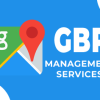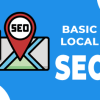Introduction to the Importance of SEO Keywords for Hotels
In the competitive hospitality industry, where online visibility can make or break a hotel’s success, leveraging SEO keywords is crucial. Whether you’re a boutique hotel, a luxury resort, or a chain with multiple properties, SEO keywords are the bridge that connects your hotel to potential guests searching for accommodations online.
SEO involves optimizing your website with specific keywords that target what users are looking for when they search for hotels. For example, keywords like “best luxury hotel in [City Name]” or “budget hotels near [landmark]” can help your hotel appear higher in search engine results and increase the likelihood of booking conversions.
In this article, we will explore the importance of using the right SEO keywords, their impact on hotel bookings, and the steps to create an effective keyword strategy for your property.
Why SEO Keywords Are Vital for Hotels to Attract Guests
SEO keywords play a significant role in helping your hotel stand out in a crowded online marketplace. The right keywords ensure that potential guests find your hotel when searching for accommodations. Hotels that fail to optimize for the correct keywords risk being lost in the vast sea of search engine results.
For instance, if a guest is looking for “family-friendly hotels in Orlando”, your hotel needs to be optimized for keywords such as “family hotel in Orlando with pool” or “Orlando vacation rentals for families.” By targeting specific, relevant keywords, you increase the chances of attracting the right audience, including families, solo travelers, business travelers, and more.
Another essential aspect is local SEO. Since most hotel bookings are driven by location, targeting keywords with geographic terms like “hotel near [landmark]” or “accommodation in [City Name]” helps increase visibility among guests searching for hotels in a specific area.
The Impact of Using SEO Keywords on Hotel Bookings and Revenue
Optimizing your hotel’s website for SEO keywords can have a profound effect on your hotel’s performance:
- Increased Website Traffic and Higher Bookings: When your hotel ranks higher for relevant keywords, your website receives more organic traffic. Increased visibility translates into more bookings, leading to higher revenue. Appearing on the first page of search engine results increases the likelihood that potential guests will choose your hotel over others.
- Better Targeting of Specific Audiences: Keywords help you target guests who are looking for specific amenities or services. For example, keywords like “pet-friendly hotels” or “romantic getaways in [City]” attract visitors with specific needs, increasing the likelihood of a booking.
- Improved Local SEO and Attraction of Nearby Guests: By targeting location-specific keywords, you can attract guests who are looking for accommodations in your area. This is particularly useful for hotels in tourist destinations, where travelers are searching for accommodations near popular landmarks.
- Increased Brand Recognition: Consistently using the right keywords across your website can help build your hotel’s brand. When potential guests see your hotel appear repeatedly in search results for their desired terms, it fosters trust and recognition.
- Higher ROI on Marketing Efforts: Compared to paid advertising, SEO provides long-term value. Once you’ve optimized your website with the right keywords, you continue to benefit from organic traffic without additional advertising costs.
Building an Effective Keyword Strategy for Hotels to Boost Online Bookings
To maximize the effectiveness of SEO for your hotel, it’s important to create a strategic plan:
- Conduct Comprehensive Keyword Research: Start by identifying the keywords your potential guests are likely to use when searching for accommodations. Use tools like Google Keyword Planner or Moz to find both broad and long-tail keywords that are relevant to your property.
- Focus on Local and Niche Keywords: Local SEO is vital for hotels. Focus on keywords like “hotel near [landmark]”, “vacation rental in [city]”, and “best resorts in [location]” to attract guests in your geographic area. Additionally, consider niche keywords like “spa resort in [City]” or “romantic honeymoon hotel” to target specific groups of travelers.
- Optimize Your Website Content: Ensure that your hotel website includes these keywords in key areas like the homepage, booking pages, room descriptions, and blog posts. High-quality, keyword-optimized content will help your site rank better on search engines.
- Create Engaging Content for Guests: Consider starting a blog that offers travel tips, local attractions, or guest experiences at your hotel. Content like “top 10 things to do in [City]” or “best restaurants near [Hotel Name]” will help you target long-tail keywords and provide value to potential guests.
- Monitor Keyword Performance and Adjust: Track the performance of your chosen keywords with Google Analytics and Google Search Console. Regularly update your strategy by incorporating new, high-performing keywords and adjusting underperforming ones.
SEO keywords are essential for improving the online presence and success of hotels. By selecting and optimizing for the right keywords, you can increase visibility, attract more guests, and ultimately boost your hotel’s revenue. Through a well-planned keyword strategy, your hotel can stand out in a competitive marketplace, ensuring that your property is the first choice for travelers.




